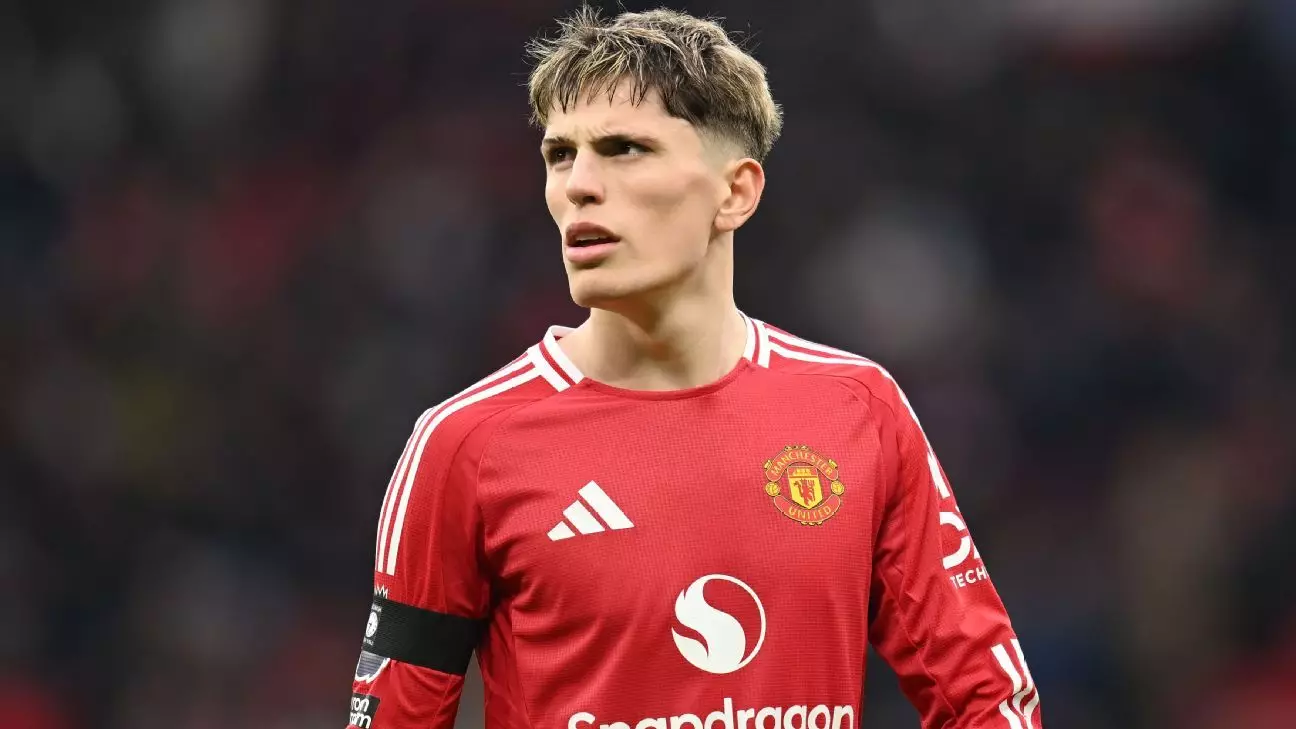Napoli’s ambitions to reinforce their attacking prowess in the January transfer window hit a snag when they considered the young Argentine talent, Alejandro Garnacho. The 20-year-old winger from Manchester United was seen as an ideal candidate to fill the void left by the departure of Khvicha Kvaratskhelia, who transferred to Paris Saint-Germain for a hefty €60 million. However, Napoli’s sporting director, Gioanni Manna, revealed that the negotiation process quickly encountered a roadblock due to Garnacho’s hefty salary expectations. This situation epitomizes one of the central dilemmas clubs face today—the balance between financial sustainability and the need to secure quality talent.
Manna emphasized that Napoli had a strong interest in Garnacho long before Khvicha Kvaratskhelia’s move to France; nevertheless, the deal never materialized. Despite making what they believed was a “very important offer” that met Manchester United’s asking price, the player’s salary demands proved insurmountable. Manna’s insistence on maintaining team harmony and respecting existing player salaries is commendable and reflects a more considered approach to squad management in an age when financial disparities can lead to discord within a team.
Manna articulated a crucial point regarding team dynamics by stating, “When you have an average salary within the dressing room and I bring in a young player that earns a medium to high salary, I don’t find it correct for those players that are doing important work here.” This insight reveals a broader consideration that often gets overlooked in transfer discussions—the importance of team culture and morale. In many clubs, especially those like Napoli, where players may not command the same financial leverage as those in top-tier leagues, introducing a player with a significantly higher salary can not only create friction but also impact performance.
Moreover, the sporting director’s views raise questions about the contemporary transfer market, where younger players often seek exorbitant contracts despite having limited experience. Such trends could potentially distort team hierarchies and create divisions within squads. Napoli’s reluctance to capitulate to wage demands is a strategic decision reflecting a commitment to fairness and team cohesion.
In addition to the Garnacho situation, Napoli faced another setback with striker Karim Adeyemi, who reportedly turned down a proposed move from Borussia Dortmund. While Manna stated that negotiations were in place, the player’s hesitance to commit to the move has sparked discussions on the club’s market strategy. Adeyemi’s rejection may signify larger implications about Napoli’s attractiveness compared to other clubs, particularly those in the Premier League known for their drawing power and financial clout.
As Napoli currently sits at the top of Serie A, the club’s leadership must remain agile in the market. They need to explore alternative investment strategies that align with their financial ethos while strengthening the squad. The January window may have presented challenges, but it also offers an opportunity for reflection, innovation, and strategic planning moving forward. By maintaining a focus on sustainable growth and team integrity, Napoli can establish itself not just as a competitor in Serie A but as a respected institution in European football.

